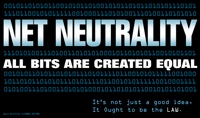In Coleman v MGN Limited [2012] IESC 20 (15 March 2012) (here and here), Denham J held:
10. The claim is now one of internet publication based on the jurisprudence in the linked cases of eDate Advertising GmbH v. X (C 509/09) and Martinez v. Société MGN Limited (C 161/10) referred to as Martinez. It was submitted that the Daily Mirror is on line every day. Counsel admitted that there was no evidence of such publication or of a person accessing such a site. His submission related to an additional site, and not to UKPressOnline which is an archival site, and which formed the substantial subject of the additional affidavit. Counsel submitted that the Daily Mirror being on line it is presumed that there would be hits on the site. Thus, the case hinges on the issue of publication on the internet. …
12. The case is now one where it is the plaintiff’s case that the defamation was published on the internet. Specifically he referred to the Daily Mirror on line. There was also reference to UKPressOnline, which is an archival website, to which institutions, such as academics, have access if they subscribe, but there is no general access other than to a thumbnail miniature of part of the article and photograph.

 A recent
A recent 

